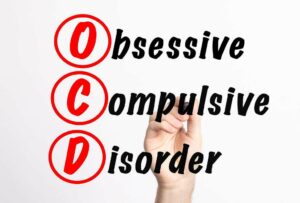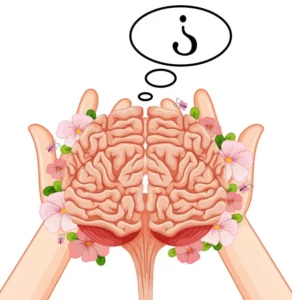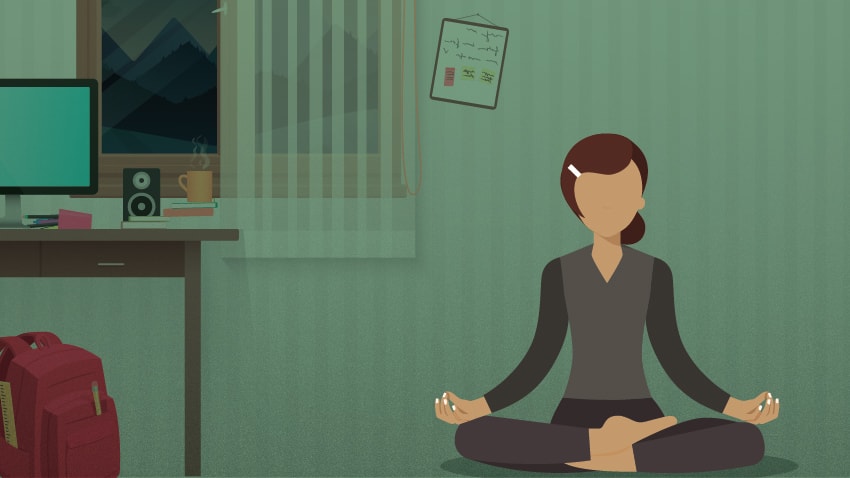Do you worry about germs? Are you constantly checking to make sure the door is locked? Do you have a hard time finishing tasks because you can’t stop thinking about all of the things that could go wrong? If so, you may be struggling with obsessive-compulsive disorder (OCD). OCD is a mental health disorder that causes people to have intrusive thoughts and perform rituals or behaviors in an attempt to relieve their anxiety. While there is no cure for OCD, there are ways to help prevent it from taking over your life. In this blog post, we will discuss 10 tips for OCD prevention from developing in the first place!
Contents
- 1 What Is OCD?
- 2 Is OCD Prevention Important?
- 3 16 Tips for OCD Prevention
- 3.1 Prioritize Mental Health
- 3.2 Engage in Cognitive Behavioral Therapy (CBT)
- 3.3 Challenge Negative Thoughts
- 3.4 Practice Mindfulness & Meditation
- 3.5 Seek Support
- 3.6 Change Your Environment
- 3.7 Be Kind to Yourself
- 3.8 Take Breaks from Technology
- 3.9 Set Realistic Goals
- 3.10 Find Healthy Coping Strategies
- 3.11 Talk to Your Doctor
- 3.12 Focus on the Positive
- 3.13 Make Time for Relaxation & Fun
- 3.14 Stay Organized
- 3.15 Challenge Perfectionism
- 3.16 Take Care of Your Health
- 4 Conclusion
What Is OCD?

OCD is a mental illness that is characterized by repetitive intrusive thoughts and behaviors. People with OCD are usually overwhelmed by persistent worries or fears related to their obsessions, which can lead to compulsive actions and rituals that are meant to reduce the anxiety associated with those obsessions.
The most common obsessions and compulsions associated with OCD include checking, washing/cleaning, counting, repeating words or phrases, hoarding things, arranging items in a certain way, and excessively worrying about health issues.
Is OCD Prevention Important?
OCD prevention is an important step that can help protect individuals from developing obsessive-compulsive disorder (OCD). It is estimated that 1.2% of the US population has OCD, and without proper treatment, it can become disabling and interfere with everyday life. Fortunately, there are steps individuals can take to reduce their chance of developing this disorder.
The importance of OCD prevention cannot be overstated. This mental health disorder is associated with significant distress and impairment in functioning, so taking steps to avoid it can help individuals lead healthier, more productive lives.
Sometimes, those who suffer from OCD may not even be aware that they have the disorder. Since most people are unaware of their symptoms and behaviors, it is important to identify risk factors for OCD and take preventive measures.
16 Tips for OCD Prevention
These obsessive thoughts and compulsive behaviors can interfere with daily life. Fortunately, there are ways to prevent OCD from taking hold. Below are 10 tips to help you avoid developing Obsessive Compulsive Disorder.
Prioritize Mental Health
it’s important to take care of your physical and mental health. Make sure that you’re getting enough rest, eating healthy meals, exercising regularly, and engaging in activities that bring you joy. Additionally, be mindful of your stress level, and work to reduce it. The better your overall health, the better equipped you’ll be to resist OCD.
Engage in Cognitive Behavioral Therapy (CBT)
One of the most effective ways for OCD prevention is through cognitive behavioral therapy or CBT. This type of therapy helps you identify negative thought patterns and replace them with more positive ones. Through this process, you can learn to manage and control your obsessive thoughts and compulsive behaviors.
Challenge Negative Thoughts

It’s important to recognize that some of the irrational thoughts associated with OCD are just that— irrational. Work on challenging these negative thoughts, such as by questioning the evidence or logic behind them, or simply reframing them in a more positive light. These strategies can help you avoid getting caught up in the cycle of obsessive thoughts.
Practice Mindfulness & Meditation
Mindfulness and meditation are great tools for preventing OCD. They can help you to become more aware of your thoughts and feelings, allowing you to distance yourself from obsessive thoughts before they spiral out of control. Mindfulness can also help to reduce anxiety and stress, which can make it easier to resist the urge to act on compulsive behaviors.
Seek Support
Having a strong support network is essential when it comes to preventing OCD. It’s important to have people in your life to who you can talk openly and honestly about your worries and concerns. This could be friends, family members, or even a therapist or healthcare, provider. There may be local OCD support groups online or in your community as well.
Change Your Environment
Sometimes simply changing your environment can help to prevent OCD from taking hold. Take a different route to work, switch up your daily routine, or pick a new hobby. These small changes can make it easier to break the cycle of obsessive thoughts and compulsive behaviors.
Be Kind to Yourself
Practicing self-compassion is an important part of preventing OCD. Give yourself time and space to breathe and be gentle with yourself if you find that you’re struggling with intrusive thoughts. Remember that everyone has anxious moments—you’re not alone in this. When you’re kind to yourself, you give yourself permission to make mistakes and be vulnerable.
Take Breaks from Technology

It’s easy to get lost in the depths of your phone or laptop when dealing with obsessive thoughts or compulsive behaviors. Take regular breaks from technology, so that you can focus on the present moment and practice being mindful. You may also want to limit your time spent scrolling through social media for added peace of mind.
Set Realistic Goals
It’s important to set realistic goals for yourself—ones that are achievable and don’t add extra stress or anxiety. When you set manageable goals, it can make it easier to resist OCD because you won’t feel as overwhelmed by expectations. Make sure to track your progress too—seeing the progress you’ve made can help to motivate and encourage you.
Find Healthy Coping Strategies
When dealing with intrusive thoughts, it’s important to have healthy coping strategies in place. This could be anything from taking a walk or listening to music, to talking through your feelings or writing in a journal. Find what works best for you and practice these strategies whenever necessary.
Talk to Your Doctor
If you feel that OCD is taking over your life, talk to your doctor about it. They can provide treatment options and medication if needed. There are also various online resources available for learning more about OCD as well as finding support groups and other forms of help. Remember that there is no shame in seeking help—it shows strength and courage.
Focus on the Positive
It’s important to focus on the positive aspects of life. Spend time with people you love, practice gratitude for what you have, and remind yourself of your accomplishments. Doing this will help to keep your mindset in a more constructive state and prevent OCD from taking over. Also, don’t be afraid to seek out help if you need it.
Make Time for Relaxation & Fun
Taking time out to relax and engage in activities that you enjoy can help reduce anxiety and stress, which can be triggers for OCD. Make sure to set aside some time every day to do something just for you- whether it’s reading a book, listening to music, going for a walk, or anything else that brings you joy.
Stay Organized

Staying organized helps keep the mind from getting overwhelmed by too many tasks. Find ways to make life more manageable by creating systems and schedules that work for you. This could include setting reminders on your phone or writing things down in a planner so you don’t forget important tasks. Also, don’t be afraid to ask for help if you need it.
Challenge Perfectionism
Perfectionism can be a major factor in OCD. Learn to challenge your perfectionist tendencies and take risks rather than trying to do everything perfectly all the time. This could involve taking on new activities, pushing yourself to try something you’ve been scared of before, or simply speaking out more often.
Take Care of Your Health
It’s important to maintain good physical and mental health if you want to prevent OCD. Eat healthy foods, get enough sleep, and exercise regularly. All of these things can help to reduce stress and anxiety levels, which are major triggers for OCD.
These are just a few tips that may help you prevent obsessions or compulsions from taking over your life. It’s always important to keep in mind that OCD is a serious condition. It should be treated with respect and care. If you are struggling with OCD, don’t hesitate to reach out for help. You are not alone in this fight!
Conclusion
OCD is an anxiety disorder that can be debilitating, but it can also be managed with the right tools and techniques. There is no one-size-fits-all approach to preventing OCD. However, the ten tips listed above can help you prevent or reduce symptoms. Remember to take care of yourself, seek professional help if necessary, and support those around you who are dealing with OCD. With patience and dedication, you can make a difference in your own life and the lives of others affected by OCD.
No matter what situation you’re facing or how severe your symptoms may be, there is hope for a life free from obsessive-compulsive disorder.
For more information and guidance, please contact OCDMantra. OCD is a mental health disorder characterized by obsessions and compulsions. If you have any queries regarding OCD treatment, ERP therapy experienced therapists at OCDMantra can help: Book a trial OD therapy session.


